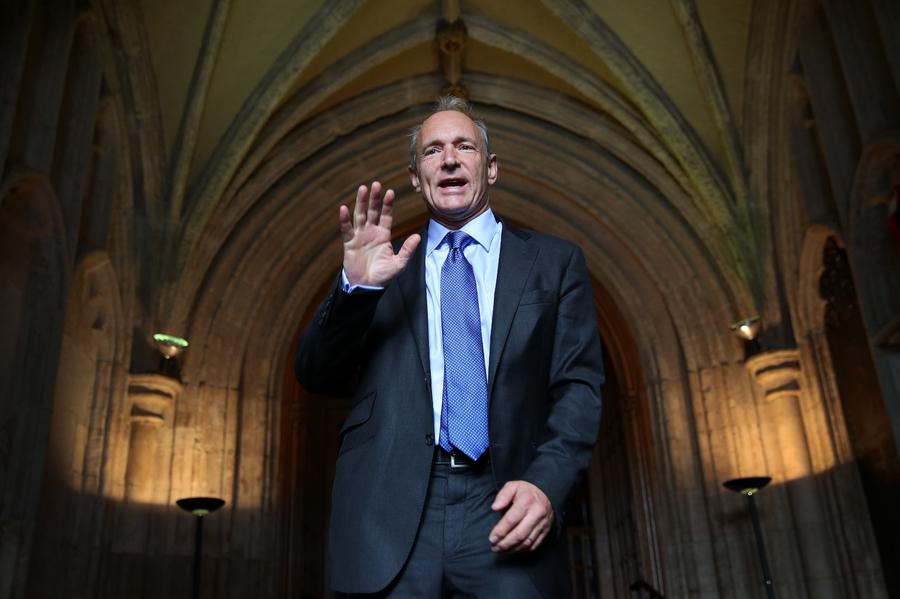Tim Berners-Lee at a Glance
- Categories: Business
- Net Worth: $10 Million
- Birthdate: Jun 8, 1955 (69 years old)
- Birthplace: London
- Gender: Male
- Profession: Scientist, Computer Scientist, Researcher, Inventor, Professor, Public speaker
- Nationality: United Kingdom
Sir Tim Berners-Lee: Net Worth, Career, and the Invention of the World Wide Web
Introduction: The Father of the World Wide Web
Sir Timothy John Berners-Lee, often referred to as Tim Berners-Lee, is a British computer scientist and engineer who is best known as the inventor of the World Wide Web. His creation revolutionized communication, information sharing, and commerce, profoundly impacting how we live, work, and interact with the world. This article explores the life, career, net worth, and enduring legacy of this pivotal figure in the digital age.
Tim Berners-Lee’s Net Worth and Salary
Tim Berners-Lee’s net worth is estimated to be around $10 million. This figure reflects his work as an academic, researcher, inventor, and director of the World Wide Web Consortium (W3C). While his salary is not publicly disclosed, his income stems from various sources including his professorships at Oxford University and MIT, as well as his involvement with various organizations related to the web.
Early Life and Education
Born on June 8, 1955, in London, England, Tim Berners-Lee was raised in a household steeped in technology. His parents, both computer scientists, worked on the Ferranti Mark 1, one of the first commercially available computers. This early exposure sparked his interest in technology. He attended the Emanuel School in London and later pursued a degree in physics at The Queen’s College, Oxford, where he earned a first-class bachelor of arts degree. During his university years, he built a computer out of an old television set, showcasing his early ingenuity.
Career: From CERN to the Creation of the World Wide Web
After graduating from Oxford, Berners-Lee began his career as an engineer at a telecommunications company. In the late 1970s, he developed typesetting software. He later became a consultant at CERN (European Organization for Nuclear Research) in the early 1980s, a pivotal point in his career. At CERN, he envisioned a system for researchers to share and update information easily, building a prototype called ENQUIRE based on hypertext principles.
In 1989, driven by the cumbersome nature of information sharing at CERN, Berners-Lee proposed a revolutionary idea that would change the world. He combined hypertext with the internet, creating the World Wide Web. He developed three fundamental technologies:
- HTML (HyperText Markup Language): The language used to structure web pages.
- URI (Uniform Resource Identifier, later URL): The system for identifying resources on the web.
- HTTP (Hypertext Transfer Protocol): The protocol for transferring data across the web.
He also built the first web browser, which served as both a browser and an editor, and the first web server. On December 20, 1990, he launched the first website, which explained the concept of the World Wide Web. This invention allowed people worldwide to connect and access information instantly.

(Photo by Peter Macdiarmid/Getty Images)
In 1994, Berners-Lee founded the World Wide Web Consortium (W3C) at MIT, an organization that sets standards and guidelines for the web to ensure its long-term growth. He has continued to advocate for an open, accessible, and neutral web throughout his career.
Impact and Legacy: Shaping the Digital Age
The impact of Tim Berners-Lee’s invention is immeasurable. The World Wide Web has transformed communication, education, commerce, and virtually every aspect of modern life. His creation has empowered individuals and facilitated global collaboration on an unprecedented scale. His legacy extends far beyond technology; he fostered a more connected and informed world.
Awards and Recognition
Tim Berners-Lee has received numerous awards and accolades in recognition of his groundbreaking contributions:
- Knighthood: Knighted by Queen Elizabeth II in 2004.
- Turing Award: Awarded the Turing Award in 2016, considered the “Nobel Prize of Computing.”
- Foreign Associate of the National Academy of Sciences: Elected as a Foreign Associate in 2009.
- Numerous honorary degrees from prestigious universities worldwide.
These honors reflect the profound impact of his work on society and technology.
Personal Life and Relationships
Tim Berners-Lee married Nancy Carlson, an American computer programmer, in 1990, and they had two children before divorcing in 2011. After becoming a parent, he returned to his religious roots and became a Unitarian Universalist. In 2014, he married Rosemary Leith, a Canadian internet and banking entrepreneur. His personal life reflects a commitment to family and a thoughtful approach to life’s experiences.
Current Projects and Future Endeavors
Berners-Lee remains actively involved in shaping the future of the web. In 2018, he announced Inrupt, a startup focused on Solid, an open-source project that aims to give individuals more control over their data. He also launched the “Contract for the Web” in 2019, a campaign with the goal of establishing core principles for web use that hold governments, companies, and citizens accountable.
Conclusion: A Lasting Impact on the Digital World
Tim Berners-Lee’s invention of the World Wide Web has left an indelible mark on human history. His commitment to an open and accessible internet has shaped the modern world and will continue to influence future technological advancements. As a visionary, inventor, and advocate, Sir Tim Berners-Lee’s legacy will endure for generations to come.

